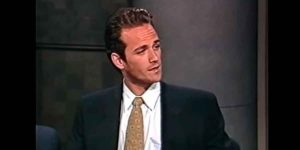Estate Planning Lawyers & Taking Nonprobate Assets
The Internal Revenue Service (IRS), as the federal tax authority in the United States, has the electricity to acquire taxes owed by way of humans and entities. When it comes to non-probate assets, the IRS does have the authority to pursue a series of movements below positive circumstances. To absolutely understand the IRS’s capability to take non-probate assets, it’s necessary to first understand what non-probate belongings are and how they differ from probate assets.
Probate belongings are those that are a problem to the probate technique upon the demise of an individual. This commonly consists of belongings that are entirely owned with the aid of the deceased and no longer have a particular beneficiary. Examples of probate belongings can include actual estate, bank accounts, and non-public belongings. The probate system entails validating the deceased person’s will, settling debts and taxes, and distributing assets to beneficiaries.
On the other hand, non-probate properties are those that pass without delay to a specified beneficiary upon the demise of an individual, bypassing the probate process. These assets are governed by means of precise and contractual arrangements, such as beneficiary designations, joint ownership with rights of survivorship, and trusts. Non probate assets can include lifestyle insurance policies, retirement accounts, payable-on-death bank accounts, and assets held in trusts.
Estate Planning Lawyers & Nonprobate Assets
When it comes to the IRS’s ability to pursue a series of actions, it generally depends on the type of tax owed and the precise circumstances surrounding the non-probate assets. Let’s discover a few scenarios:
- Income Taxes: If a man or woman owes earnings taxes to the IRS, the IRS has the authority to pursue a series of movements in opposition to non-probate assets. This can include putting liens on real estate or seizing money from bank accounts, regardless of whether or not the assets are difficult to probate or not. The IRS has extensive powers to gather taxes owed, and non-probate properties are no longer exempt from their reach.
2. Estate Taxes: Estate taxes are imposed on the universal fee of an individual’s property at the time of their death. However, the IRS normally only assesses estate taxes on large estates that exceed a positive threshold, which is subject to trade primarily based on present-day tax laws. When it comes to estate taxes, each probate and non-probate asset can be a situation for taxation. The executor of the estate is responsible for submitting a property tax return and paying any taxes owed, which may additionally require liquidating assets, which include non-probate assets, to fulfill the tax liability.
3. Gift Taxes: If a man or woman made items in the course of their lifetime that passed the annual exclusion quantity (which is a concern to change), they may additionally have incurred gift tax liabilities. The IRS has the authority to pursue collection actions in opposition to non-probate assets to satisfy gift tax obligations. It’s really worth noting that gift taxes are commonly paid through the person making the gift, now not the recipient.
4. Trusts: Non probate assets held within a belief can be issued to IRS series moves if the faith is determined to owe taxes. The IRS can area liens on faith assets or pursue different series of actions to satisfy any tax liabilities associated with the trust.
Estate Planning Lawyers & The IRS Conclusion
It’s necessary to apprehend that the IRS’s potential to take non-probate belongings is no longer unlimited. There are positive legal protections and exemptions in location to shield individuals’ interests. For example, retirement accounts, such as 401(k)s and IRAs, may be included in IRS series movements to some extent. Additionally, state legal guidelines may additionally provide exemptions for certain sorts of belongings from creditor claims, along with those from the IRS.
In conclusion, the IRS does have the authority to take non-probate assets under certain circumstances. Nonprobate assets, which consist of belongings that pass immediately to a distinct beneficiary upon the dying of an individual, can be difficulty to IRS collection actions for earnings taxes, estate taxes, gift taxes, and trust-related taxes. The IRS has vast powers to gather taxes owed, and non-probate belongings are now not exempt from their reach. However, it’s important to be aware that there are legal protections and exemptions in location to shield individuals’ interests.
Retirement accounts, such as 401(k)s and IRAs, may additionally be included to some extent, and kingdom laws can also provide exemptions for sure sorts of assets from IRS series actions. It’s fundamental for men and women to understand their tax obligations, seek advice from tax authorities or criminal advisors, and take steps to protect their property and decrease tax liabilities.
































